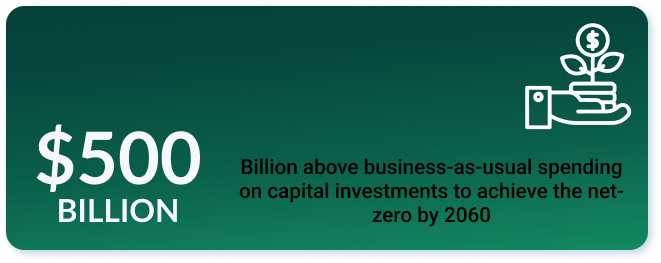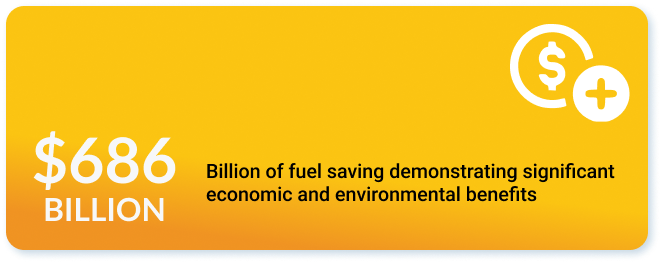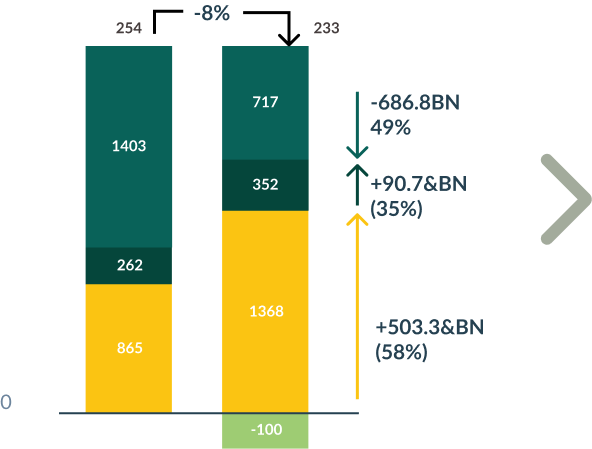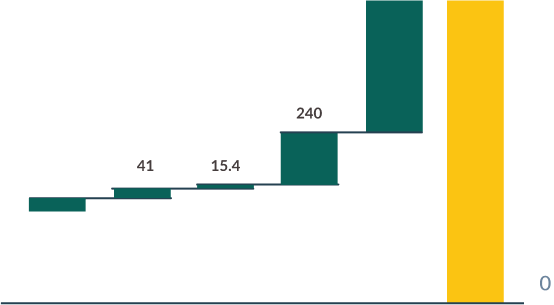pathway to achieve
carbon neutrality
by 2060
Nigeria: Leading the Way in Just and Equitable Climate Action
In Nigeria, desertification in the north, floods in
the centre, pollution and erosion on the coast and the associated socio-economic consequences all allude to the reality and grave impacts of climate change. Consequently, bold action to limit the impacts of climate change must be undertaken urgently.
At the same time, in light of rapidly rising population, accelerated development is needed to ensure improved living conditions for millions of Nigerians.
The next couple of decades present a unique opportunity to merge these two priorities; economic development and climate action, and to achieve in Africa’s largest economy, one of the world’s first true just transitions.

Reducing emissions and
powering development


His Excellency President Bola Ahmed Tinubu
At COP26, Nigeria announced its commitment to carbon neutrality by 2060.
Nigeria’s Energy Transition Plan (ETP) was unveiled shortly after– highlighting the scale of effort required to achieve the 2060 net zero target whilst also meeting the nation’s energy needs.
Since the announcement, the Climate Change Act 2021 has been passed, the ETP has been fully approved by the Federal Government. The Energy Transition Office now supports the Federal Government of Nigeria in the implementation of the Energy Transition Plan.
At the core of the plan are the following imperatives:
Improved Energy access
Improved energy access for millions of Nigeria
Poverty reduction
Lift 100 million Nigerians out of poverty and driving economic growth
Modern
Energy access
Bring modern energy services to the full population
job preservation
Manage the expected long-term job loss in the oil sector due to the reduced global fossil-fuel demand
Sustainable Transition
Play a leadership role for Africa by promoting a fair, inclusive and equitable energy transition in Africa that will include Gas as a “transitionary fuel”
legislation
Streamline existing and new government related energy transition initiatives
The ETP requires significant
emission reductions in 5 key sectors
Nigeria’s Net Zero pathway – ETP 2022

No Data Found
Emissions decrease by ~100% as solar increases and starts to replace gas in its role as a transition fuel and due to a shift away from diesel/petrol generators.
Transition away from diesel/petrol generators (which account for bulk of current generation capacity)
Initial expansion of gas generation capacity to establish baseload capacity for meeting increased electricity demand and integrating renewables.
Ramp up of renewables-backed electrification to facilitate decarbonization in sectors such as buildings (cooking), industry and transportation.

No Data Found
Emissions decrease by ~97% due to uptake of Electric Vehicles in the passenger car and public transport segments.

No Data Found
Emissions decrease by ~87% primarily driven by falling global demand as well as reduced flaring and improved electrification and energy efficiency in upstream activities.
Emissions decrease primarily driven by global response to climate change.
Reduction in flaring and fugitive emissions also support decarbonization.

No Data Found
Emissions decrease by ~98% based on a shift away from traditional fuels like firewood, charcoal, and kerosene to LPG (in the short term), bio-gas-based, and electric cooking.
Speedy replacement of traditional firewood, kerosene and
charcoal by LPG to achieve SDG7 by 2030.
Post 2030 transition to electric cookstove and biogas with the latter mainly in rural homes

No Data Found
Emissions decrease by ~97% despite industrial growth due to decarbonization efforts in cement/ammonia production and 100% shift to zero-emission fuels for heating.
- power
- oil and gas
- transport
- cooking
- industry
The Nigeria ETP was initially created with a 2050 net-zero target. However, given the significant financial, social and technological requirements, the nation concluded that a more realistic pathway to deep decarbonization would land on 2060.
Nigeria’s journey to carbon neutrality by 2060
of Nigeria’s Total emissions
transport
45Mt CO₂e
power
42Mt CO₂e
industry
14 Mt CO₂e
Buildings
2.3Mt CO₂e
Source: SEforALL Analysis

No Data Found
Source: Nigeria GHG Inventory Report 2000-2017 (2021)
- Agriculture (non-CO2)
- Waste (CO2 and non-CO2)
- Land-Use Change and Foresty (CO2)
- Industrial Process(non-CO2)
- Fugitive Emissions (CO2 and non-CO2)
- Energy (non-CO2)
Key insights
- 88.6 Mt CO₂e come from energy-related emissions, with around 84% of from power and transport sectors alone.
- 535.6 Mt CO₂e comes from non-CO₂ energy-related and non-energy related emissions, mainly livestock, managed soils, fugitives, waste, and LUCF – out of scope of this plan.
- LULUCF emissions, composed of only CO₂ emissions, have a strong linkage with deforestation due to biomass use for cooking in buildings.
- Non-CO₂ emissions on energy sector are methane and nitrous oxide emitted from fuel combustion on transport, manufacturing and energy industries.
- Fugitive emissions, are mainly sourced from oil and gas activitie
Job Creation Potential of Nigeria's Net-Zero Transition
Nigeria’s net-zero pathway will result in significant net job creation with up to 340k jobs created by 2030 and up to 840k jobs created by 2060 driven mainly by the Power, Cooking and Transport sectors.
Nigeria’s energy transition creates significant investment opportunities such as the establishment and expansion of industries related to solar energy, electric vehicles.
Job Creation Potential
of Nigeria's Net-Zero Transition
- oil
- power
- transport
- cooking
- gas


Resources
Nigeria Integrated Energy Planning Tool
The Nigeria Integrated Energy Planning Tool is an online, interactive data visualization platform that brings together several layers of data to help Nigerian policy makers and practitioners make more informed decisions about their strategies and operations to advance energy access in the country.



ETP Data Stakeholders’ Engagement
In an era marked by increasing digitization, the generation and consumption of data has experienced exponential growth, impacting every sector.The Energy Transition Office (ETO) held its one-day Energy Transition Plan: Data Stakeholder Session at the Ogun-Nassarawa Hall, Transcorp Hilton, Maitama, Abuja, on Wednesday, the 19th day of July, 2023. The event featured stakeholders from different organizations relevant to the energy and data sector. The Energy Transition Office is the secretariat of Nigeria’s Energy Transition Plan and is resourced by Sustainable Energy for All (SEforALL) and Global Energy Alliance for People and Planet (GEAPP). The ETO works to support commitments made by Nigeria to attain Net-Zero Emissions by 2060. The Energy Transition Plan (ETP) represents the nation’s strategy, which primarily targets energy poverty and climate change and proposes to significantly lower carbon emissions across 5 key sectors: Power, Cooking, Transport, Industry and Oil & Gas by 2060. Accurate, sufficient, timely, accessible, and up-to-date data has been identified as vital, imperative, and non-negotiable in the achievement of the ETP’s objectives. However, the Nigerian narrative, fuelled

Latest Past Events
Partners
Achieving Nigeria’s climate ambitions and energy needs requires strong partnerships and coalitions. The Energy Transition Office is supported by the following partners.







